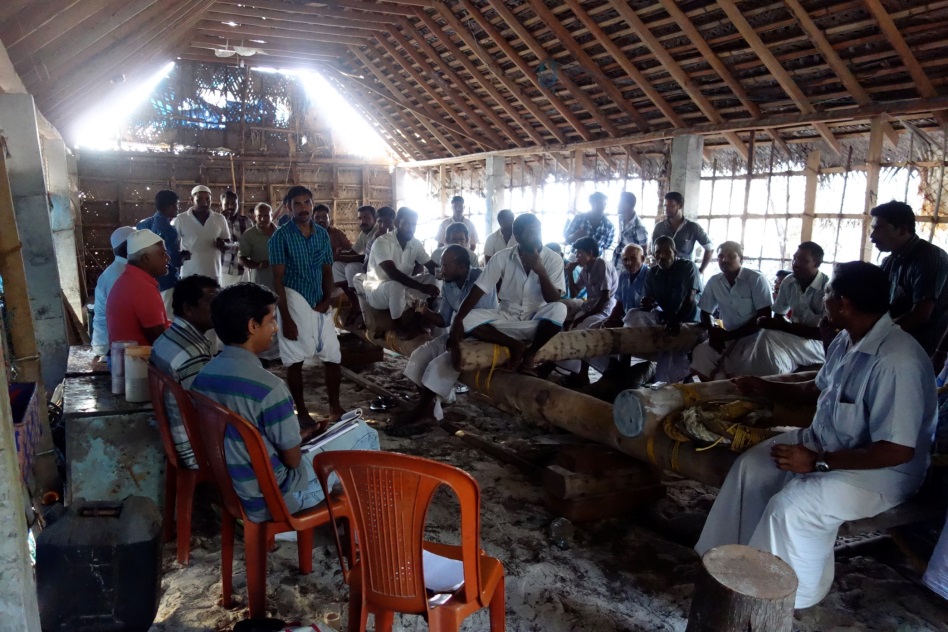Systematic data on various aspects of fisheries is vital for their sustainable management. Pole and line tuna fishing, a highly sustainable fishing method, is the main fishery of Lakshadweep. Our CBFM programme tries to address existing data gaps by collecting information on key fishery variables from Lakshadweep’s pole and line fishers. This approach is participatory and voluntary, using co-created monitoring logbooks and helps overcome the logistical constraints in conventional monitoring.
The CBFM approach collects data at larger spatio-temporal scales than researcher-led monitoring, producing results that can feed into fisheries management plans. The democratic process of sharing knowledge inculcates ownership of data among fishers. Our experience with CBFM shows that translating the data into usable information helps fishers plan their fishing operations better. CBFM enables fishers to see trends in fishery resources over time and empowers them for local-level decision-making.
CBFM provides fishers of Lakshadweep a unique opportunity to engage in a two-way sharing of information with researchers on crucial aspects of the fishery. Our experience with the CBFM programme shows that keeping detailed records of day-to-day fishery dynamics helps fishers plan their fishing operations better. In the long term, this approach seeks to reduce fishers’ reliance on external agencies and provide the foundation for local-level, knowledge-based decision-making on fishery issues.
The participants are pole and line tuna fishers of the Lakshadweep, having experiential knowledge on various aspects of the fishery and enumeration skills for recording catch estimates.


